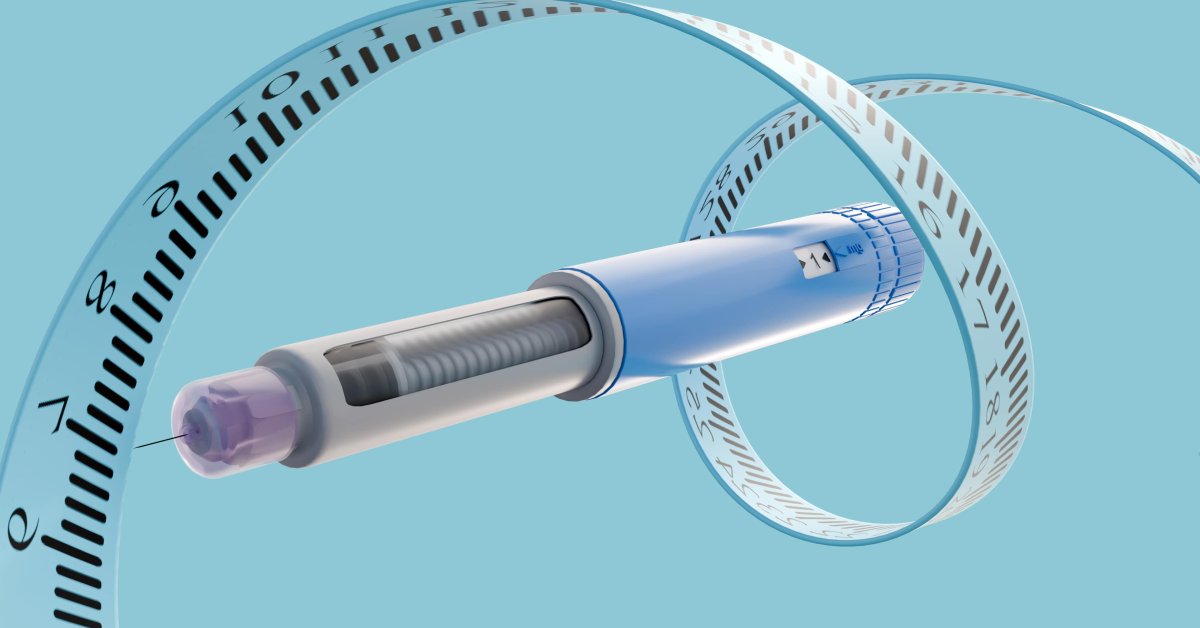Weight-Loss Drugs: Are The Risks Worth The Reward?

Welcome to your ultimate source for breaking news, trending updates, and in-depth stories from around the world. Whether it's politics, technology, entertainment, sports, or lifestyle, we bring you real-time updates that keep you informed and ahead of the curve.
Our team works tirelessly to ensure you never miss a moment. From the latest developments in global events to the most talked-about topics on social media, our news platform is designed to deliver accurate and timely information, all in one place.
Stay in the know and join thousands of readers who trust us for reliable, up-to-date content. Explore our expertly curated articles and dive deeper into the stories that matter to you. Visit Best Website now and be part of the conversation. Don't miss out on the headlines that shape our world!
Table of Contents
Weight-Loss Drugs: Are the Risks Worth the Reward?
The quest for effective weight loss is a multi-billion dollar industry, and with the recent surge in popularity of weight-loss drugs like Ozempic and Wegovy, many are questioning: are the risks worth the reward? These medications, while showing impressive results in clinical trials, also come with potential side effects that need careful consideration. This article delves into the benefits, risks, and considerations surrounding weight-loss medication, empowering you to make informed decisions about your health.
The Allure of Quick Results: How Weight-Loss Drugs Work
Weight-loss drugs, primarily GLP-1 receptor agonists like semaglutide (Ozempic, Wegovy) and liraglutide (Saxenda), work by mimicking a natural hormone that regulates appetite and blood sugar. This leads to increased feelings of fullness, reduced food intake, and ultimately, weight loss. These medications aren't a magic bullet; they're most effective when combined with lifestyle changes like diet and exercise. This synergistic approach is crucial for long-term success and minimizing potential risks.
- Increased Satiety: These drugs significantly increase feelings of fullness, making it easier to stick to a calorie-controlled diet.
- Improved Blood Sugar Control: Many also improve insulin sensitivity, benefiting individuals with type 2 diabetes.
- Potential Cardiovascular Benefits: Some studies suggest potential benefits for cardiovascular health, although more research is needed.
The Risks and Side Effects: A Balanced Perspective
While effective, weight-loss drugs aren't without potential side effects. These can vary in severity and frequency, and it's crucial to discuss them thoroughly with your doctor before starting any medication.
- Gastrointestinal Issues: Nausea, vomiting, diarrhea, and constipation are common side effects, often experienced early in treatment.
- Pancreatitis: A rare but serious side effect, pancreatitis is inflammation of the pancreas. Immediate medical attention is required if symptoms like severe abdominal pain occur.
- Gallstones: Weight loss can increase the risk of gallstones, requiring monitoring and potential medical intervention.
- Kidney Problems: Some individuals may experience kidney-related issues, highlighting the need for regular monitoring of kidney function.
- Thyroid Tumors: Although rare, an increased risk of thyroid tumors has been associated with GLP-1 receptor agonists in animal studies. Human studies are ongoing to fully assess this risk.
Who Should Consider Weight-Loss Medication?
Weight-loss drugs are not a one-size-fits-all solution. They are typically prescribed to individuals with a BMI of 30 or higher (obese) or those with a BMI of 27 or higher (overweight) who also have weight-related health conditions like type 2 diabetes or high blood pressure. Your doctor will assess your individual health profile, medical history, and lifestyle to determine if medication is appropriate for you.
Lifestyle Changes Remain Crucial: A Holistic Approach
It's crucial to remember that weight-loss drugs are tools to support, not replace, healthy lifestyle changes. A balanced diet, regular exercise, and stress management are essential components of successful and sustainable weight management. Weight-loss medication should be viewed as part of a comprehensive strategy, not a quick fix.
The Bottom Line: Informed Decisions for a Healthier You
The decision to use weight-loss medication is a personal one. Weighing the potential benefits against the risks requires careful consideration and a thorough discussion with your healthcare provider. They can help you understand the potential side effects, monitor your progress, and ensure you're making informed decisions based on your individual circumstances. Remember, a holistic approach to weight management, combining medication with lifestyle changes, often yields the best results and minimizes potential health risks. Consult your doctor today to discuss if weight-loss medication is right for you.

Thank you for visiting our website, your trusted source for the latest updates and in-depth coverage on Weight-Loss Drugs: Are The Risks Worth The Reward?. We're committed to keeping you informed with timely and accurate information to meet your curiosity and needs.
If you have any questions, suggestions, or feedback, we'd love to hear from you. Your insights are valuable to us and help us improve to serve you better. Feel free to reach out through our contact page.
Don't forget to bookmark our website and check back regularly for the latest headlines and trending topics. See you next time, and thank you for being part of our growing community!
Featured Posts
-
 Daytona Surprise Cody Wares Path To The Nascar Playoffs
Aug 24, 2025
Daytona Surprise Cody Wares Path To The Nascar Playoffs
Aug 24, 2025 -
 Trump Vs D C Federal Takeover Threat Amidst Heightened Crime Debate
Aug 24, 2025
Trump Vs D C Federal Takeover Threat Amidst Heightened Crime Debate
Aug 24, 2025 -
 Exclusive Shawn Hatosy On The Pitt Season 2 And His First Time Directing
Aug 24, 2025
Exclusive Shawn Hatosy On The Pitt Season 2 And His First Time Directing
Aug 24, 2025 -
 The Impact Of X Ai On Memphis Displacement And The Fight For Community Rights
Aug 24, 2025
The Impact Of X Ai On Memphis Displacement And The Fight For Community Rights
Aug 24, 2025 -
 Short Film Projects Exploring Partnerships Between Sunderland Afc Svg Europe And Edinburgh University
Aug 24, 2025
Short Film Projects Exploring Partnerships Between Sunderland Afc Svg Europe And Edinburgh University
Aug 24, 2025
 First Day Jitters And Federal Control D C Families React
First Day Jitters And Federal Control D C Families React
 Billy Idol Announces New Album Extensive Tour And Revealing Documentary
Billy Idol Announces New Album Extensive Tour And Revealing Documentary
